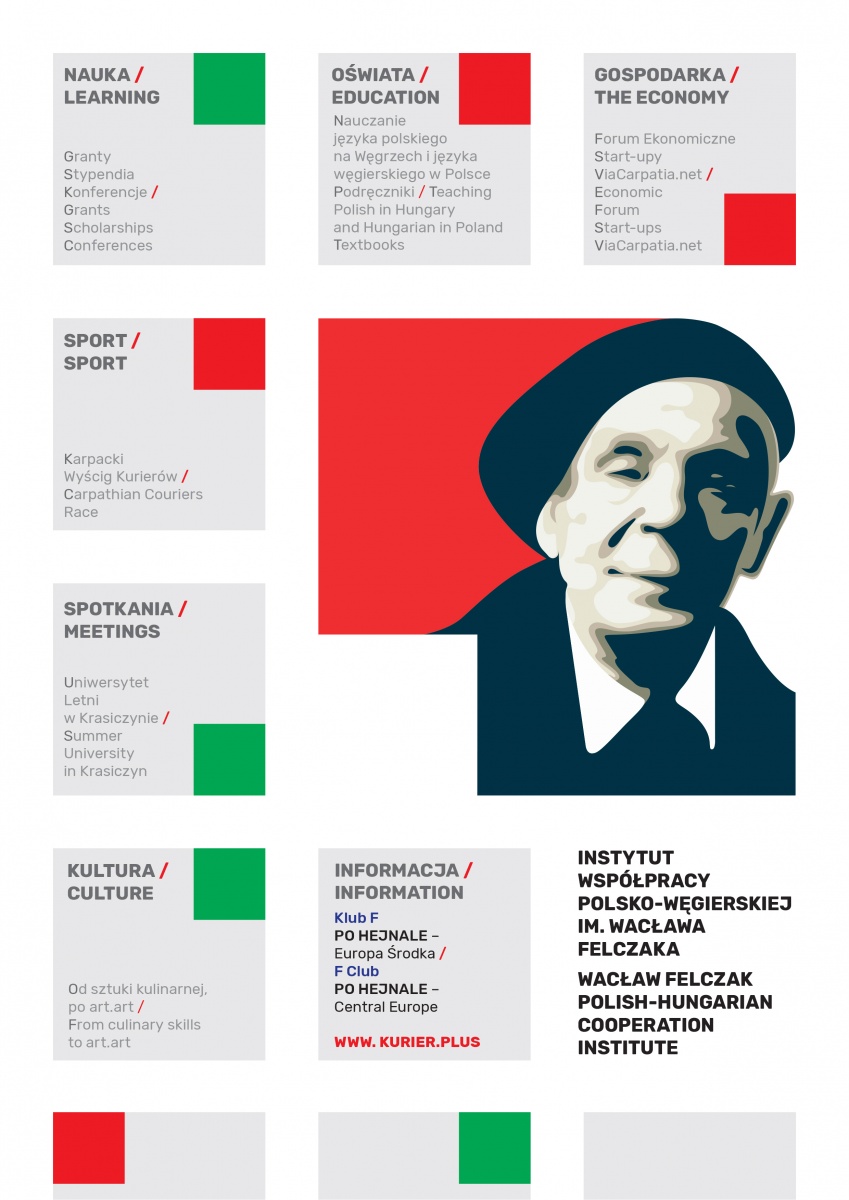- 216534 views
The countries of the Visegrad Group (Poland, Hungary, Czech Republic and Slovakia) will continue to support Ukraine in defense against Russia as each country sees fit.
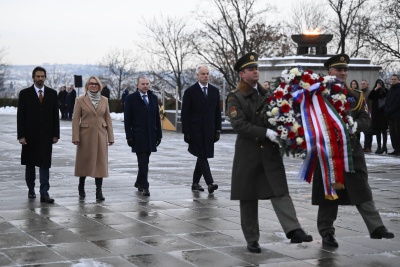
The countries of the Visegrad Group (Poland, Hungary, Czech Republic and Slovakia) will continue to support Ukraine in defense against Russia as each country sees fit.
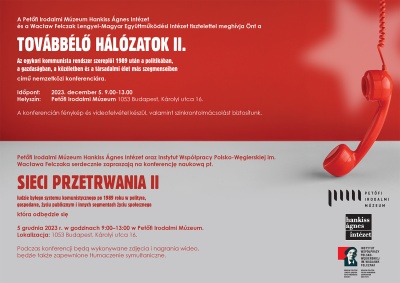
On Tuesday in Budapest, a scientific conference titled "Survival Networks II: People from the former communist system after 1989 in politics, economy, public life, and other segments of social life" took place. The conference was organized jointly by the Felczak Institute, the Petőfi Literary Museum, and the Hankiss Ágnes Institute. Scientists from Poland, Hungary, and the Czech Republic participated in the event.
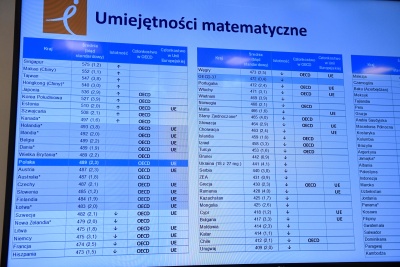
The results of the latest edition of the prestigious international PISA study show that both Polish and Czech fifteen-year-olds have maintained a high position globally in terms of mathematical skills, reading comprehension, and scientific reasoning. Young Hungarians also outperformed the average youth from the countries of the Organization for Economic Cooperation and Development.
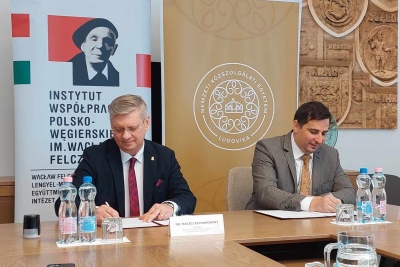
On Monday, December 4th, representatives of the Felczak Institute and the National University of Public Service (Nemzeti Közszolgálati Egyetem or NKE) - Director Maciej Szymanowski and Rector Deli Gergely - signed a formal agreement.
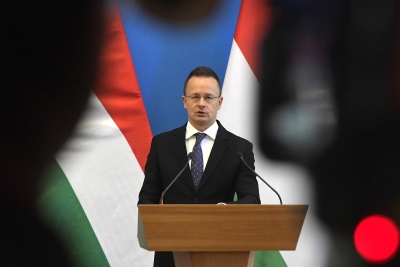
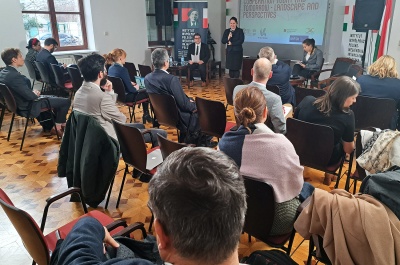
On November 29, 2023, a significant conference unfolded at the Warsaw headquarters of the Wacław Felczak Polish-Hungarian Cooperation Institute.
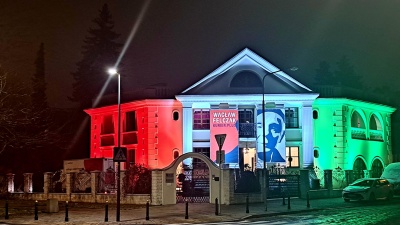
On Monday, a group of Hungarian studies students from Krakow, Poznań, and Warsaw gathered once more at the Wacław Felczak Institute of Polish-Hungarian Cooperation. However, this wasn't your typical philologists' meeting; it was a captivating exploration into the nuances of business etiquette, diplomatic protocol, and the art of presentation. Agnieszka Barátka, the deputy director of the Felczak Institute, highlights that the purpose of these encounters with experts was to move Polish Hungarian…

Today marks the 70th anniversary of the birth of singer Edyta Geppert, an artist with both Polish and Hungarian heritage. Although the renowned Polish vocalist was born and raised in Nowa Ruda in southern Poland, her mother was a native Hungarian. "At home, we all spoke Hungarian. I did too, until I started school. I still understand the language, although speaking it wouldn't be easy for me," the artist reminisced in one of her interviews.
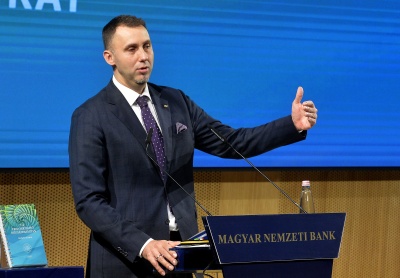
Hungary's central bank (Magyar Nemzeti Bank) cut its base rate by another 75 basis points on Tuesday. Barnabás Virág. Photo by MTI/Lajos Soós (J)
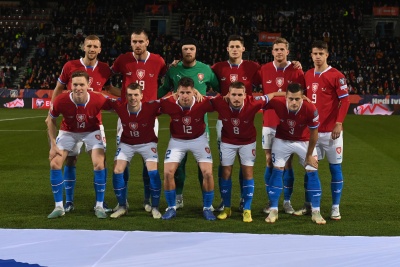
The Czech Republic did not waste their chance, and on November 20, they crushed Moldova 3-0 at home. In the Group E table, the Czech football team surpassed Poland by four points, securing their place in next year's European Championship in Germany (this marks the eighth qualification for the Czechs in Euro history). Consequently, it is now certain that at least three out of the four Visegrád Group countries—Czech Republic, Slovakia, and Hungary—will be represented at Euro 2024.

On September 26, 2011, the Hungarian Parliament declared November 13th the day of the Hungarian language, because in 1844, on this day, the Act on the Hungarian language and nationality was adopted, making Hungarian the state language. Photo by Erika Varga/Pixabay (J)
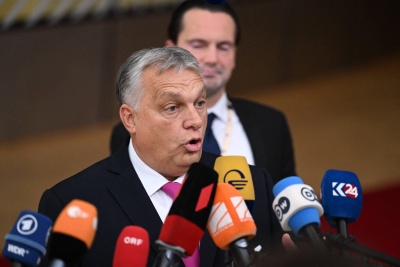
"The European Parliament lifted the immunity of four PiS MEP's for speaking out against illegal migration. This is the beginning of the end...
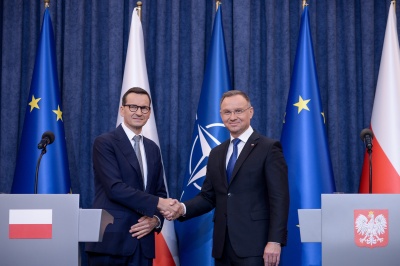
Poland’s president Andrzej Duda has tapped the outgoing prime minister, Mateusz Morawiecki of the Law and Justice party, to try to form the country’s next government.
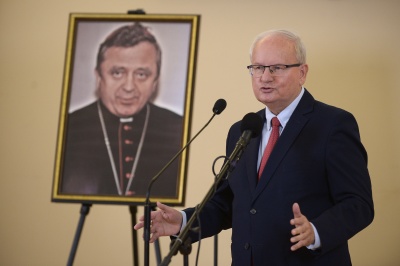
Today, the prestigious "Diamentowy Ślad" award was presented to Dr. Andrzej Grajewski. He is a journalist and historian who has demonstrated exceptional journalistic skills, a profound exploration of the recent history of the Church, long-standing dedication to promoting reconciliation among the nations of Eastern and Central Europe, and a noble commitment to civic engagement. Dr.

The Hungarian government announced today CSOK PLUS initiative which aims to offer financial support to families based on the number of children they have. Minister of Culture and Innovation János Csák emphasized at a press conference that Hungary aims to become the most family-friendly country in Europe.
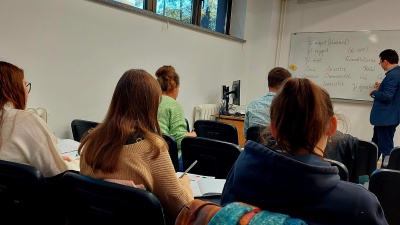
On October 18th, the Wacław Felczak Institute of Polish-Hungarian Cooperation officially renewed its cooperation agreement with the John Paul II Catholic University of Lublin.
